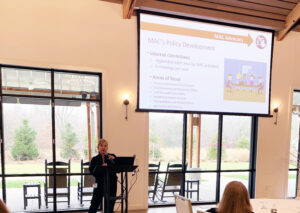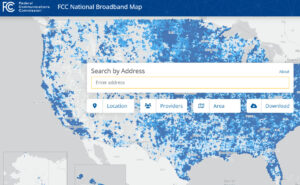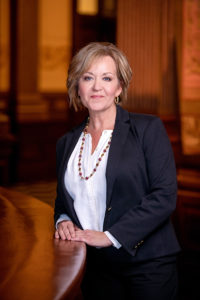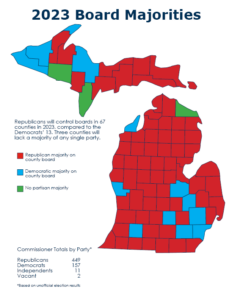Big increase for counties from liquor tax advances from Senate
 A two-bill package designed to extend the capture of liquor tax revenue that counties use for substance abuse programs passed the Senate this week. Senate Bills 1222-23, by Sen. Wayne Schmidt (R-Grand Traverse), would amend the State Convention Facilities Authority Act to extend the sunset on the capture of liquor tax revenue for improvements to the convention facility in Detroit and therefore extend the sunset on the collection of liquor tax revenue for counties.
A two-bill package designed to extend the capture of liquor tax revenue that counties use for substance abuse programs passed the Senate this week. Senate Bills 1222-23, by Sen. Wayne Schmidt (R-Grand Traverse), would amend the State Convention Facilities Authority Act to extend the sunset on the capture of liquor tax revenue for improvements to the convention facility in Detroit and therefore extend the sunset on the collection of liquor tax revenue for counties.
The issues were tied together when the act was created. Under current law, the collection and allocation of the liquor tax revenue expires once the bonds for the convention facility are paid off. Due to recent increases in liquor tax revenue, those bonds are scheduled to be paid off 13 years early, which would eliminate the future collection of revenue and deplete the allocation to counties. This two-bill package does not extend the 2039 deadline for the bonds to be paid off, but it does allow the facility authority to issue additional bonds for improvements.
MAC has been working with representatives from the authority to address our need to have counties’ annual allocation reflective of the collection of the liquor tax revenue. Current law states counties receive an increase in their allocation based on a percentage above the previous year’s allocation, not on a percentage of the total tax collected. The excess tax collected is instead allocated to the reduction of the bond debt of the authority. (Again, due to the increase in liquor tax revenue, those bonds are scheduled to be paid off early.)
By allowing the authority to issue additional debt for improvements, the bills do something significant for counties. Beginning in 2023, the baseline allocation in liquor tax dollars for counties will increase by approximately 48 percent. The annual increase will remain the same as current law of 1 percent additional each year, but the baseline will be reset every three years to reflect the increase in revenue from the liquor tax.
Also, current law states 50 percent of the liquor tax revenue received by counties must be allocated to substance abuse programs. SBs 1222-23 will change that requirement to 40 percent (though no less than the amount allocated in FY22). In short, this will be a significant increase in funds toward substance abuse programs and an increase in the amount counties can allocate to their general funds.
The bills received bipartisan support in the Senate and now move to the House for consideration next week.
For more information on this issue, contact Deena Bosworth at bosworth@micounties.org.
Mental health privatization fails in Senate, but threat still looms
 Legislation to privatize control of local mental health services, opposed by MAC, was defeated Tuesday in a surprise vote in the Senate.
Legislation to privatize control of local mental health services, opposed by MAC, was defeated Tuesday in a surprise vote in the Senate.
Senate Bills 597 and 598, by Sens. Mike Shirkey (R-Jackson) and John Bizon (R-Calhoun), were rejected by votes of 15-17 and 15-19, respectively.
These bills would have shifted financial administration of Medicaid mental health services to private Medicaid health plans, taking away public accountability and local governance and replacing it with for-profit private insurance companies.
However, there is still potential for a deal that would insert the language from SBs 597-598 into an already introduced House bill, keeping the possibility of mental health privatization at play in the current lame duck session.
MAC opposes any attempt to shift toward privatization of our local public mental health system, and we urge members to contact their legislators to share their opposition as well.
For more information on this issue, contact Samantha Gibson at gibson@micounties.org.
Expect toolkits and more in 2023 on opioid settlement resources
 As anticipation for opioid settlement dollars increases, there are numerous resources that counties can expect to see to support the decision-making processes associated with spending. Early in 2023, counties can expect to see documents released from three different groups to assist.
As anticipation for opioid settlement dollars increases, there are numerous resources that counties can expect to see to support the decision-making processes associated with spending. Early in 2023, counties can expect to see documents released from three different groups to assist.
The first to expect will be the “Michigan Opioid Settlement Funds Toolkit: A Guide for Local Spending,” released by MAC in collaboration with Vital Strategies. This toolkit will provide an overview of the settlements, data on the scope of the overdose crisis and information on accessing local data, plus principles, strategies and recommended steps for spending.
The Center for Health and Research Transformation, based in Ann Arbor, will release resources for local governments related to the potential areas for spending with additional information provided regarding the evidence to support specific strategies. This work will provide more details to aid in spending plan development.
The Opioid Advisory Commission is also expected to release a report outlining recommendations for which strategies to fund. While these documents are expected in early 2023, there are numerous other resources that exist, and additional reports and resources will become available in the future.
To view current resources, visit MAC’s Opioid Settlement Resource Center.
For more information on this issue, contact Amy Dolinky at dolinky@micounties.org.
Election winners crowd into New Commissioner School sessions

Executive Director Stephan Currie addresses NCS audience in Frankenmuth on Nov. 28.
More than 130 newly elected commissioners, returning commissioners and administrators gathered in Saginaw and Barry counties this week for the first two of four in-person New Commissioner School settings.
MAC Executive Director Stephan Currie welcomed attendees to both locations, explaining how MAC would be their partner on their “journey” into county public service. Currie also led a group discussion at each site, inviting veteran commissioners in attendance, such as Michael Webster of Saginaw County, to share personal experiences from their initial weeks and months on county boards. MAC Board directors, such as Vaughn Begick of Bay County and Second Vice President Jim Storey of Allegan County, also provided perspectives for the commissioners-elect.
Deena Bosworth, director of governmental affairs, briefed attendees on MAC’s advocacy work and on the sea change coming to the State Capitol via the Democratic victories in the November 2022 General Election.
On-site sessions of the New Commissioner School, a 50-year partnership of MAC and MSU Extension, continue in December in Marquette County (Dec. 5) and Roscommon County (Dec. 12).
 Vaughn Begick of Bay County speaks with attendees at the NCS site in Frankenmuth. |
 Deena Bosworth discusses MAC policy development at Barry County site on Nov. 29. |
Trio of county officials graduates from NACo Leadership Academy
 MAC would like to acknowledge and congratulate the August 2022 NACo Leadership Academy graduates from Michigan. They join more than 5,000 graduates and current participants from across the country benefitting from the 12-week online program enabling existing and emerging county leaders to achieve their highest potential:
MAC would like to acknowledge and congratulate the August 2022 NACo Leadership Academy graduates from Michigan. They join more than 5,000 graduates and current participants from across the country benefitting from the 12-week online program enabling existing and emerging county leaders to achieve their highest potential:
- Darcy Weaver, human resources director, Leelanau County
- Jenifer Boyer, emergency management coordinator, Midland County
- Michael Andrews, policy and fiscal analysis supervisor, Oakland County
The January 2023 cohort for the Leadership Academy is just around the corner. Prioritize leadership development for your team today and deliver results for your team and County. Scholarships are available.
CLICK HERE TO LEARN MORE AND ENROLL
 Staff picks
Staff picks
- What’s wrong with U.S. broadband? (TheVerge)
- Can you tax a cow’s burps? New Zealand will be the first to try. (National Geographic UK)
- Are new housing policy reforms working? We need better research to find out. (Brookings Institution)
- More Michiganders are grinding their teeth, causing stress-induced damage (MLive)
MAC leaders address SE Michigan summit on county cooperation

Chairs of Macomb, Wayne and Oakland pose next to their pledge of collaboration at the Nov. 18 Tri-County Summit: (l-r) Don Brown of Macomb, Alisha Bell of Wayne and Dave Woodward of Oakland.
MAC leadership joined county and expert leaders in Southeast Michigan today to present at the 2022 Tri-County Summit at the Detroit Zoo put on by the county boards from Macomb, Oakland and Wayne counties.
In addition to remarks from MAC Executive Director Stephan Currie and Governmental Affairs Director Deena Bosworth, attendees heard presentations on broadband equity, water infrastructure and economic forecasts, plus comments from the county board chairs, Alisha Bell (Wayne), Don Brown (Macomb) and Dave Woodward (Oakland).
The boards of commissioners from Wayne, Oakland and Macomb Counties set a theme of “Moving Forward. Moving Together.” Expanding on the issues discussed at last year’s event, this year’s event continued the discussions to “strategize ways to work together to improve and strengthen our region’s approach in these shared issues.”
MAC also was pleased to sponsor this annual event, designed to foster regional cooperation among the three largest counties in Southeast Michigan, home to more than 40 percent of Michigan’s population.
New Commissioner School gets under way with digital welcome
 The 2022 edition of the New Commissioner School, a longstanding joint project of MAC and MSU Extension, got under way Friday with a digital welcome for participants.
The 2022 edition of the New Commissioner School, a longstanding joint project of MAC and MSU Extension, got under way Friday with a digital welcome for participants.
Nearly 200 have registered for the school, which is an intensive briefing on the many and varied duties of a county commissioner in our state.
Please note that there’s still time to register to participate, as the four on-site locations (see below) do not start until Nov. 28. For more information about the program, click here.
This year’s program has on-site and digital elements that are designed to complement each other, so it is vital for the newly elected to utilize both:
Nov. 15-30 – Self-paced, Asynchronous Online Learning for all cohorts
NCS In-Person Sessions – 9 a.m. – 4:30 p.m.
-
Nov. 28 – Bavarian Inn and Conference Center, One Covered Bridge Lane, Frankenmuth, MI 48734 (registration closes at 10 p.m. on Nov. 22)
-
Nov. 29 – BayPointe Inn, 11456 Marsh Road, Shelbyville, MI 49344 (registration closes at 10 p.m. on Nov. 22)
-
Dec. 5 – Landmark Inn, 230 N. Front St., Marquette, MI 49855 (registration closes at 10 p.m. on Dec. 1)
-
Dec. 12 – Kirtland College, 4800 W. 4 Mile Road, Grayling, MI 49738 (registration closes at 10 p.m. on Dec. 8)
County Commissioner Academy
Participation in the 2022 New Commissioner School will earn a commissioner 5 credit hours in MAC’s County Commissioner Academy, our continuing education program for county leaders. To learn more about CCA, click here.
FCC releases broadband availability map
 The first rendition of the Federal Communications Commission’s (FCC) broadband map is now available.
The first rendition of the Federal Communications Commission’s (FCC) broadband map is now available.
After an extensive data collection process, the FCC has shared what they believe to is an accurate depiction of internet availability across the country. Both public and private entities were involved in the initial phase of data collection. The Michigan High Speed Internet Office (MIHI) worked with the Department of Technology, Management and Budget to gather and share Michigan’s data with the FCC.
Consumers will now be able to type in their address to see which internet service providers claim to offer service at their location and at which speeds. The FCC is hopeful that this level of transparency will encourage internet providers to improve their coverage. The maps will also allow for grant dollars to be distributed more fairly. Michigan is projected to receive $1.5 billion in federal funding through the BEAD program in 2024, with unserved and underserved communities prioritized first.
County officials and consumers have been invited to challenge the map by submitting their own data before Dec. 1, 2022. While the MIHI Office and private internet providers worked to share accurate information, local officials have a unique opportunity to better understand the door-to-door coverage in their areas.
This will not be your only opportunity to challenge the map; MIHI and the FCC have indicated this will be an ongoing process with updates to the map being made regularly. MAC will continue to share these opportunities to challenge as they are made available.
For more information on this issue, contact Madeline Fata at fata@micounties.org.
Bosworth briefs incoming legislators on lobbying in Lansing

Fifty members of the incoming Michigan House of Representatives were briefed on key county activities and how to interact with lobbyists by MAC Governmental Affairs Director Deena Bosworth in Lansing this week.
Bosworth, joined by MAC Board Director Joe Palamara of Wayne County and others, participated in the traditional briefings that newly elected legislators attend after each general election, held in the Mackinac Room at the Anderson House Office Building, or “HOB,” in Lansing parlance.
Updated commissioner results don’t alter county control map
 As final election paperwork is filed, Michigan will have at least 198 new county commissioners in 2023, according to a corrected MAC review of county-by-county results.
As final election paperwork is filed, Michigan will have at least 198 new county commissioners in 2023, according to a corrected MAC review of county-by-county results.
See list of 2023 county commissioners.
This tweak does not change the turnover rate for this election cycle of 32 percent. However, a recount has been requested in Midland County’s District 6 that could still alter final results.
Republicans will control boards in 67 counties in 2023, while Democrats will have majorities in 13. Neither major party will have a majority in Iron, Menominee or Presque Isle counties.
County millage results from 2022 General Election
NACo urges Congress to prioritize behavioral health
 Last week, NACo members, including two Michigan counties, signed onto a letter urging Congress to prioritize counties’ behavioral health needs in a bipartisan legislative package.
Last week, NACo members, including two Michigan counties, signed onto a letter urging Congress to prioritize counties’ behavioral health needs in a bipartisan legislative package.
The letter provides a list of five policies to improve local behavioral health services. These policies include amending the Medicaid Inmate Exclusion Policy (MIEP), repealing the Institutions for Mental Diseases (IMD) exclusion, funding direct and flexible grant programs to counties for recruitment, training, and retention of their behavioral health workforce, sustaining federal funding to support local crisis response infrastructure through Medicaid, and enforcing policies that ensure equal coverage of treatment for mental illness and addiction.
Before the end of the year, Congress still has time to pass additional behavioral health measures that would improve services that counties currently provide. Both NACo and MAC support community-based treatment and services to those with behavioral health conditions.
For more information on this issue, contact Samantha Gibson at gibson@micounties.org.
Infrastructure Council seeks new ‘champions’ for asset management
 The Michigan Infrastructure Council (MIC) is welcoming a new cohort of infrastructure leaders into the Asset Management (AM) Champion Program. This program will establish a network of talented individuals and organizations to help strengthen and “champion” best practice asset management across Michigan’s complex infrastructure environment.
The Michigan Infrastructure Council (MIC) is welcoming a new cohort of infrastructure leaders into the Asset Management (AM) Champion Program. This program will establish a network of talented individuals and organizations to help strengthen and “champion” best practice asset management across Michigan’s complex infrastructure environment.
The AM Champion Program is a fast-paced and interactive training curriculum that combines asynchronous education, facilitated discussion, peer interactions, and industry learning into a professional certification from MIC. The next iteration of the program will run Jan. 10-March 31, 2023, and will require approximately 25 hours to complete.
If you are a local, regional, or state government employee, public-sector asset owner or leader from an industry organization and would like to participate, please fill in the application form. The program is entirely funded by MIC and is free for participants.
Deadline for applications is Dec. 30, 2022.
For details, see the program flier.
MAC offices to close for Thanksgiving holiday
 MAC’s Lansing offices will be closed Nov. 24-25 to observe the national Thanksgiving holiday.
MAC’s Lansing offices will be closed Nov. 24-25 to observe the national Thanksgiving holiday.
Normal office hours will resume on Monday, Nov. 28 at 8 a.m.
MAC Executive Director Stephan Currie and the entire MAC team wish you and your loved ones a safe and pleasant Thanksgiving.
 Staff picks
Staff picks
- Pothole study: See where Michigan ranks (MLive)
- A reality check on Michigan’s autonomous vehicle future (Citizens Research Council of Michigan)
- The 10 Michigan counties with biggest hike in voter turnout – 5 red and 5 blue (MLive)
- Claim of new world record for longest beard chain in Wyoming (Associated Press)
Plenty of new faces on county boards
There will be plenty of new faces around county board tables come January following the Nov. 8 General Election. Most boards will continue to be controlled by Republicans.
A MAC review of unofficial election results shows 199 new names among the 619 county commissioner slots for 2023-24. This reflects a turnover rate of 32% turnover, which is higher than a usual election cycle but not extraordinary for the first election after a reapportionment process.
See unofficial list of commissioners here.
After the 2020 Census, county reapportionment boards redrew commissioner districts and, cumulatively, reduced the total number of seats from 622 in 2022 to 619 for the next decade.
And most of those seats will be held by Republicans.
For the coming term, the partisan breakdown is:
- 448 – Republican (up 10 from pre-election totals in 2022)
- 158 – Democratic (down 11)
- 11 – No Partisan Affiliation (down 3)
- 2 – Vacant (to be filled by appointment)
Republicans will control boards in 67 counties, while Democrats will have majorities in 13. Neither major party will have a majority in Iron, Menominee or Presque Isle counties.
Voters give Democrats full control of Legislature for 2023

Election night in Michigan led to historic results for state government in 2023, as Democrats will have full control of the Michigan Legislature for the first time since the early 1980s.
Democrats will claim 56 seats in the 110-seat House of Representatives and 20 seats in the 38-member Senate.
In the executive branch offices, Democrats swept the top three, with Gov. Gretchen Whitmer, Secretary of State Jocelyn Benson and Attorney General Dana Nessel all winning in unofficial results.
There will be 24 former county commissioners serving in the Legislature in January, MAC’s “County Caucus.” They are:
Sen.-elect Veronica Klinefelt (D-Macomb); Sen-elect Sue Shink (D-Washtenaw); Sen. Jeff Irwin (D-Washtenaw); Sen.-elect Sarah Anthony (D-Ingham); Sen. Jim Runestad (R-Oakland); and Sen. Ruth Johnson (R-Oakland).
Rep.-elect Jason Morgan (D-Washtenaw); Rep. Felicia Brabec (D-Washtenaw); Rep.-elect Dale Zorn (R-Lenawee); Rep. Christine Morse (D-Kalamazoo); Rep. Julie Rogers (D-Kalamazoo); Rep. Jim Haadsma (D-Calhoun); Rep. Sarah Lightner (R-Jackson); Rep. Robert Bezotte (R-Livingston); Rep.-elect Thomas Kuhn (R-Oakland); Rep. David Martin (R-Genesee); Rep. Kara Hope (D-Ingham); Rep.-elect Penelope Tsernoglou (D-Ingham); Rep.-elect Phil Skaggs (D-Kent); Rep. Amos O’Neal (D-Saginaw); Rep.-elect Matthew Bierlein (R-Tuscola); Rep.-elect Curt VanderWall (R-Mason); Rep.-elect Betsy Coffia (D-Grand Traverse); and Rep. Ken Borton (R-Otsego).
Sen.-elect Klinefelt, Rep.-elect. Bierlein and Rep. Borton also are former presidents of the MAC Board of Directors.
See a complete list of unofficial winners in all the Michigan House and Senate.
Look for more details and analysis on the legislative impacts for counties in upcoming Legislative Update emails and future editions of Michigan Counties magazine.
Legislative caucuses choose leaders for 2023-24 term
 Members of the incoming Legislature gathered in Lansing Thursday to select leaders for the new term, the first in decades in which Democrats will be the majority in both legislative chambers.
Members of the incoming Legislature gathered in Lansing Thursday to select leaders for the new term, the first in decades in which Democrats will be the majority in both legislative chambers.
Sen. Winnie Brinks (D-Kent) will serve as the first Democratic Senate majority leader since 1984 and will be the first female to ever fill the position. She completed three terms in the House from 2012-2018, joining the Senate the following year. Alongside her will be Sen.-elect Sam Singh (D-Ingham) as majority floor leader, whose role is to assemble the session agenda. He also served in the House from 2012-2018, gaining leadership experience as minority leader in 2017 and 2018.
Sen. Aric Nesbitt (R-Van Buren) will assume the role of Senate minority leader. It has been widely accepted since at least 2020 that he would serve his caucus in the top position, whether his party was victorious or not. Sen. Dan Lauwers (R-St. Clair) is the current majority floor leader and will continue his duties while in the minority. Other minority leadership seats include Sen. Roger Victory (R-Ottawa) as whip and Sen. Kevin Daley (R-Lapeer) as caucus chair.
In another historic win, Rep. Joe Tate (D-Wayne) will be the first ever black man to hold the position of speaker of the House. This will be his third term as representative, most recently serving as minority vice chair in the House Appropriations Committee. Rep. Abraham Aiyash (D-Wayne) will also be making history as the highest-ranking Muslim in the Michigan Legislature, serving as majority floor leader.
Rep. Matt Hall (R-Kalamazoo) has been chosen to serve as House minority leader. Like Nesbitt in the Senate, his name has dominated the conversation around the GOP caucus’ top spot, and the party’s loss doesn’t seem to have swayed the caucus to vote differently. The minority floor leader will be Rep. Bryan Posthumus (R-Kent). Rep. Sarah Lightner (R-Jackson), a former county commissioner, will be caucus whip, and Rep. Ken Borton (R-Otsego), a former MAC Board president, will be caucus chair.
Senate panel OKs Veteran Service Fund changes
 The County Veteran Service Fund, established by the legislature in 2018, was created to encourage counties to establish and maintain County Veteran Service Offices. The fund ensures that counties are eligible for a $50,000 grant annually, plus additional funding based on the number of veterans living within the county.
The County Veteran Service Fund, established by the legislature in 2018, was created to encourage counties to establish and maintain County Veteran Service Offices. The fund ensures that counties are eligible for a $50,000 grant annually, plus additional funding based on the number of veterans living within the county.
On Thursday, the Senate Local Government Committee approved House Bill 6377, by Rep. Roger Hauck (R-Isabella), which would modify the distribution structure of the County Veteran Service Fund.
Under HB 6377, counties must maintain a minimum county veteran service funding level of 70 percent of the funding level from FY 2017 in order to receive the $50,000 grant from the County Veteran Service Fund. The 70 percent funding level requirement was previously only for FYs 2021 and 2022. HB 6377 extends the requirement to FY 2023 and beyond.
The bill now heads to the Senate floor for consideration. Although there are few session days left, we are hopeful that the bill will make it to the governor’s desk before the end of the year.
For more information on this issue, contact Samantha Gibson at gibson@micounties.org.
Podcast 83 breaks down effects of historic election
 MAC’s Podcast 83 team delves into the implications for county governments of Michigan’s historic 2022 elections, in which Democrats won full control of the Legislature for the first time in 40 years.
MAC’s Podcast 83 team delves into the implications for county governments of Michigan’s historic 2022 elections, in which Democrats won full control of the Legislature for the first time in 40 years.
Host Stephan Currie and the MAC Governmental Affairs Team of Deena Bosworth, Madeline Fata and Samantha Gibson discuss the Democratic win’s effects on such issues as:
- Action in the “lame duck” days of the concluding legislative session
- Prospects for restoring remote meeting options under the Open Meetings Act
- Size of MAC’s “County Caucus” in the new Legislature
- Fate of discussions on another state supplemental spending bill
See the video session, taped on Nov. 9, 2022, here.
Previous episodes in 2022 can be seen at MAC’s YouTube Channel.
And you always can find details about Podcast 83 on the MAC website.
Michigan counties join Operation Green Light campaign
 Michigan counties joined with counterparts across the country this week in Operation Green Light, a demonstration of support for the nation’s veterans by lighting buildings green and encouraging others to do the same.
Michigan counties joined with counterparts across the country this week in Operation Green Light, a demonstration of support for the nation’s veterans by lighting buildings green and encouraging others to do the same.
Kent County’s participation extended to the front porch of Commissioner (and MAC President) Stan Ponstein’s home (photo at right).
Other Michigan counties participating were Saginaw, Oakland, Dickinson, Midland and Iron.
MAC congratulates these counties, and any others who participated, for showing their support of members of our armed services, past and present.
AG opinion applies to county boards of canvassers
 We know many of you are all too familiar with the upcoming festivities, but this is a friendly reminder that Election Day is just around the corner! Polls open at 7 a.m., and close at 8 p.m., on Tuesday, Nov. 8. While county clerks and municipal officials really run the show at the polls, we wanted to take this opportunity to highlight some of the roles and responsibilities county commissioners have in the elections process.
We know many of you are all too familiar with the upcoming festivities, but this is a friendly reminder that Election Day is just around the corner! Polls open at 7 a.m., and close at 8 p.m., on Tuesday, Nov. 8. While county clerks and municipal officials really run the show at the polls, we wanted to take this opportunity to highlight some of the roles and responsibilities county commissioners have in the elections process.
As you know, county commissioners appoint members to their county board of canvassers. Each county board consists of four persons, two from each major political party. Members of the board of canvassers are responsible for determining that all precincts have returned their votes and those votes have been counted. Once that has been completed, the board of canvassers must certify the election.
The Attorney General’s Office recently shared an unpublished opinion reaffirming the role of Michigan Board of State Canvassers and its ministerial duties to certify the election in a disinterested manner. In other words, members of the board have a clear legal duty to serve the public free from their own personal or philosophical beliefs. The opinion also states that if an individual on the Michigan Board of State Canvassers fails or refuses to perform their duties, they are not entitled to taxpayer-funded legal representation.
After consulting legal professionals, we have determined that the attorney general’s opinion is applicable to county-level boards of canvassers. This means that your appointees will be held to the same standards in this election, and future ones.
Nearly 30 counties have millage asks on Nov. 8 ballot
 Across Michigan, voters in 29 counties will determine the fate of millage proposals on Nov. 8.
Across Michigan, voters in 29 counties will determine the fate of millage proposals on Nov. 8.
Voters in Bay County have the most decisions to make, as they are being presented five different millage requests that are a mix of new taxes, expansion of existing ones or simple renewals.
In Chippewa County, voters are being asked to renew a 6.15 mill operational levy for the county, the single largest rate request in data collected by the Gongwer News Service.
In Kalamazoo County, voters are being asked to approve an increase in their county’s operational millage for the next 20 years to a total rate of 4.85 mills.
And in Roscommon County is asking its voters to compensate for Headlee amendment rollbacks on its operating millage, moving it to 4.6 mills (the rate that existed in 1978) from the current 3.5 mills.
Common subjects for special millage requests this cycle include support of medical care facilities; veterans services; ambulance services; services for the aging; and public safety measures.
See complete list of county millage requests on Nov. 8 ballot.
MAC brings on adviser to assist counties on opioids planning

Dolinky
In partnership with a global public health organization, the Michigan Association of Counties has brought aboard a technical adviser to assist counties on strategies to best employ funds from the opioids settlement.
Amy Dolinky recently joined Vital Strategies, a public health organization from the CDC Foundation and will be posted to MAC’s Lansing offices as she begins efforts on the “development of a county-level opioids settlement funds strategy in collaboration with local jurisdictions and coordinating resources with state leadership, local philanthropies, and technical assistance partners for maximizing and prioritizing of opioid settlement funds.”
Dolinky served as a senior adviser on the Michigan Opioids Strategy at the Michigan Department of Health and Human Services. She holds a bachelor’s degree in criminal justice from Loyola University New Orleans and a master’s in public policy and administration in global health from Northwestern University.
“This is an exciting opportunity for our members as they begin to work out how best to serve their communities with the millions of dollars they are receiving through the national settlement,” said MAC Executive Director Stephan Currie. “Amy’s work will be an excellent complement to the settlement resources we have been collecting and sharing with our members for months.”
Members can reach Dolinky through the MAC offices or by email at dolinky@micounties.org.
MAC understands the critical nature of addressing the nation’s overdose crisis and the impact across the state and within Michigan’s local communities. With more than 2,900 lives lost to overdose in 2021, MAC is dedicated to increasing support and assisting in capacity building within the counties of Michigan.
To see county-level data of overdose-related deaths, emergency department visits and emergency medical service responses, visit the state of Michigan’s Overdose Data to Action Dashboard.
 MAC offices will close to mark Veterans Day
MAC offices will close to mark Veterans Day
MAC’s Lansing offices will be closed on Friday, Nov. 11 to mark Veterans Day.
Normal office hours will resume at 8 a.m. on Monday, Nov. 14.
Staff picks
 U.S. Supreme Court won’t consider Lake Michigan beach rights case (MLive)
U.S. Supreme Court won’t consider Lake Michigan beach rights case (MLive)
- West Michigan shelter issues plea for help as Michiganders stop adopting (Holland Sentinel)
- (Oakland) County investing $20M in local parks and recreation (Royal Oak Tribune)
- 3 tips for getting a bigger piece of the IIJA pie (American City and County)
MAC signs letter to state asking for more juvenile justice beds

Michigan is short vital resources for juvenile offenders and the state needs to act, MAC and nine other associations told Gov. Gretchen Whitmer and the Michigan Department of Health and Human Services (MDHHS) in a letter sent this month.
The letter expressed concern with the lack of short-term local juvenile detention resources and out-of-home placement opportunities for highest-risk youth and warned of a system-wide crisis due to the addition of the 17-year-old population in the juvenile justice system and the closing of state and private treatment beds across the state. In many instances, short-term detention facilities operated by courts and counties are housing youth for months at a time, as opposed to days and weeks as they are intended to. The bed shortage has led courts throughout Michigan to go without proper placement for the highest-risk delinquent youth.
Local courts, counties and other stakeholders have been persistent in their efforts to resolve the shortage of beds. The circumstances that have led to this point, including lack of staffing, Raise the Age legislation, COVID restrictions and new rules and regulations have resulted in a critical shortage that is harming communities and juveniles, some of whom have mental health challenges.
The letter urges Whitmer, MDHHS and legislators to take act and work alongside stakeholders to address the bed shortage crisis with both short- and long-term solutions.
For more information on this issue, contact Samantha Gibson at gibson@micounties.org.
MAC needs members’ voices to help block mental health privatization
 County leaders’ voices are needed right now to prevent a looming compromise that would privatize Michigan’s local mental health services.
County leaders’ voices are needed right now to prevent a looming compromise that would privatize Michigan’s local mental health services.
A compromise deal involving Senate Bills 597 and 598 by Senate Majority Leader Mike Shirkey, R-Jackson) and House Bills 4925-4928 (by Rep. Mary Whiteford, R-Allegan) could result in new legislation that would damage mental health services in Michigan. SBs 597-598 would shift financial administration of Medicaid mental health services to private Medicaid health plans, taking away public accountability and local governance and replacing it with for-profit private insurance companies.
The potential deal would likely move all of children’s Medicaid services, including autism and foster care, over to private insurance companies, and the state would create one statewide entity to manage the remaining populations, essentially transitioning from 10 Pre-paid Inpatient Health Plans (PIHP) to one PIHP.
MAC opposes any attempt to shift toward privatization of our local public mental health system, and we urge members to contact their legislators to share their opposition as well.
For more information on this issue, contact Samantha Gibson at gibson@micounties.org.
Early-bird pricing now available for NACo Legislative Conference

The National Association of Counties (NACo) Legislative Conference brings together nearly 2,000 elected and appointed county officials to focus on federal policy issues that impact counties and our residents.
The 2023 conference will be Feb. 11-14 at the Washington Hilton in Washington, D.C.
And until Dec. 10, 2022, the NACo member rate is $520.
At the event, attendees have the opportunity to engage in second-to-none policy sessions, meet the members of the 118th Congress and interact with federal agency officials. This is a one-of-a-kind advocacy opportunity to strengthen our intergovernmental partnerships for years to come.
Registration link: https://www.naco.org/events/2023-legislative-conference
Schedule link: https://www.naco.org/events/schedule/257320
Local government webinar to focus on blight, housing, outdoor grants
 In partnership with the Michigan Municipal League, Michigan Townships Association, Michigan Association of Counties and the Michigan County Road Association, the Michigan Department of Treasury is pleased to announce the 18th joint webinar, “Updates and Resources for Local Governments” for Nov. 3 at 2 p.m. (Eastern).
In partnership with the Michigan Municipal League, Michigan Townships Association, Michigan Association of Counties and the Michigan County Road Association, the Michigan Department of Treasury is pleased to announce the 18th joint webinar, “Updates and Resources for Local Governments” for Nov. 3 at 2 p.m. (Eastern).
The Updates and Resources for Local Governments webinar series is designed to provide local government leaders and officials with the information, tools, and resources necessary to make important decisions at the local level. The upcoming webinar will focus on a selection of grants that are available to local governments through various State departments.
Specific topics covered will include:
- Outdoor Public Spaces Grant Opportunity – SPARK (MDNR) – grants to help local communities to create, renovate or redevelop public outdoor spaces
- Blight Elimination Grant – State Land Bank Authority is administering grants to local communities to address vacant and deteriorated properties
- Michigan State Housing Development Authority (MSHDA) Grants
- MI Hope – energy efficient home repair grants eligible to nonprofits and local governments
- Missing Middle Housing – housing production program designed to address the general lack of attainable housing and housing challenges underscored by the COVID-19 pandemic by increasing the supply of housing stock by providing cost defrayment to developers constructing or substantially rehabbing properties targeted to household incomes between 185% and 300% of the Federal Poverty Guidelines
- Housing and Community Development Fund – developing and coordinating resources to meet the affordable housing needs of low-income households eligible to nonprofit and for-profit developers, municipalities, land banks, and community development financial institutions
Participants can register and submit questions prior to the webinar by clicking here.
Presentations and recordings from this webinar, along with previous webinars, can be found at TREASURY – Webinars (michigan.gov). Utilize TREASURY – Contact Information (michigan.gov) for support related to Treasury’s local government services.
 Staff picks
Staff picks
- ‘Bella’ tops Ottawa County’s list of ‘pup-ular’ dog names of 2022 (Ottawa County)
- Households primarily heating with heating oil or propane will likely pay more this winter (Energy Information Administration)
- How cities and counties expanded their American Rescue Plan commitments in early 2022 (Brookings Institution)
- Analysis of Ballot Proposal 22-2 (voting/election changes) (Michigan Senate Fiscal Agency)







